A lot of thought and consideration has gone into choosing the perfect interior leathers for the Johnny the Fox. I often receive questions about what the leather differences are for the Fox interiors: How do they age? Do they patina nicely? What shell cordovan color options are there? Are some leathers more thick than others? The longest period of time in the two year development of my Johnny the Fox traditional bifold was selecting the perfect leather which took about a year and a half to get just right. I will explain why the leather we chose makes the Johnny the Fox special, and help you determine the correct choice for your needs.
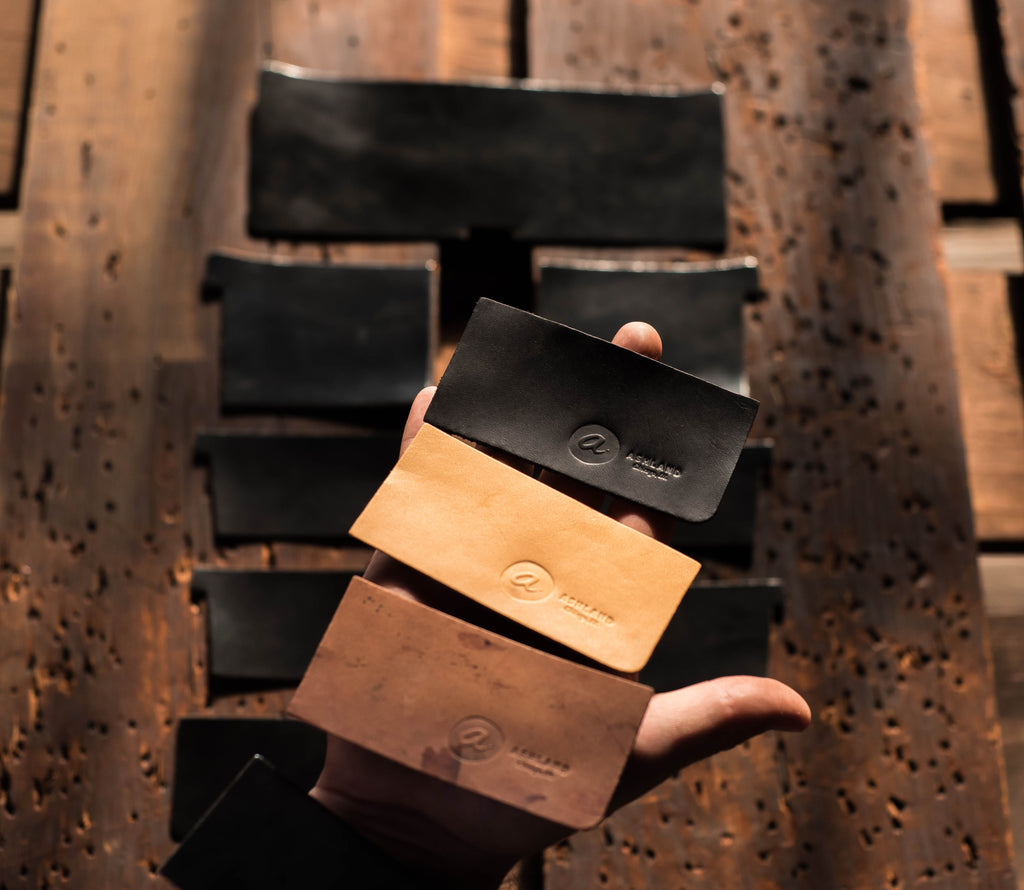
Why does the interior need to be different?
We use a special tannage on horsehide developed just for us by Horween Leather Co. and is inspired by old saddlery leather. We needed a brand new and different leather to meet the requirements of the Johnny the Fox design. The tannage was carefully designed and tanned to be as thin as possible, as strong as possible, and have great aging characteristics.
Thickness
A thick wallet is uncomfortable and cumbersome. Nobody wants to sit on or fumble through a novel-sized wallet to get their cards and cash. Not all pieces of shell cordovan are thin enough to be appropriate for the Fox interior. Johnny the Fox uses premium horse hides that are the most naturally thin pieces of leather that Horween can get. It is of vital importance to start with a hide that is naturally close to the thickness that the wallet requires. Of course, we are able to thin down leather in a process called splitting. However, if you need to split down to extremely thin pieces that the Johnny the Fox requires, you risk reducing the tensile strength on the leather. By completely avoiding any splitting we dramatically increase the tensile strength and durability of the wallet. In the five years of making these wallets I have not seen the horsehide rip (knock on wood!).
Further, we chose a leather tannage that uses a pasting drying method which further thins out the leather without compromising strength. I will describe pasting in-depth on another post, but here’s a brief explanation: The leather is fully saturated with water after the tanning process and needs to be dried. Using literal paste, we stick the hides to ceramic and glass frames, stretch them out, and run them through a gas drier. Pasting lays the leather out flat and also has an added benefit of reducing the stretch in the hide. A stretchy card pocket will cause cards to fall out which I know you don’t want!
Durability
Our saddlery-inspired leather is chrome tanned with a vegetable retannage and is the most durable and strong piece of horsehide we can make. One of the main reasons that Dan and I started crafting wallets was because every wallet we had started to rip or fall apart. From our experience at Horween we knew that the equine saddlery industry required exceptionally high tensile strength and durability characteristics. The saddlery leather is overkill for a wallet but would be necessary in extreme cases of abuse. Drawing from this experience, and in collaboration with Horween Leather tanner Chris Koelblinger, we developed a leather similar to a traditional Latigo tannage that has become ubiquitous in the saddlery industry. We created a thin, durable leather that also had the added benefit of developing patina.
Ages Nicely
Our wallets are like a fine wine that you can drink every day. Having a wallet that looks great, lasts a lifetime and gets better with use is a unique characteristic and main benefit of owning a leather wallet. All of the Johnny the Fox interior leathers are either fully vegetable tanned or have a vegetable retannage. Vegetable tanned leathers are unique because the natural tree barks used in the tanning process have a special ability to age and patina nicely with time. Lighter shades will slowly develop from a light tan to a deep, golden brown color with normal use.
Interior Leather and Color options for Johnny the Fox
We offer shell cordovan a horsehide options for the Johnny the Fox interiors. We currently have:
- Black horsehide
- Moc horsehide
- Teal horsehide
- Color #8 Shell Cordovan
- Color #8 Reverse Shell Cordovan
- Black Shell Cordovan
- Black Reverse Shell Cordovan
What the heck is moc?
Moc is a color name and is an old tannery term that we believe is short for "moccasin". There is no difference between the black and moc horsehide interiors. Moc is simply a color designation.
What about rare color shell cordovan interiors?
We have successfully crafted wallets with rare color shell cordovan but these are currently not possible for us to offer. There are two compounding issues of the rarity of the shell cordovan colors and, more significantly, the lack of the naturally-occurring thin pieces of shell cordovan required for the nine layers of pattern pieces that Johnny the Fox has. We refuse to thin down leather because we want to make a wallet that will last a lifetime. We simply cannot offer the rare colors with any reliability due to this standard of quality. With leather thickness and splitting I like to compare it to a house: A good house has a strong foundation and if you were to remove any of it the strength of the entire structure is compromised. By splitting down leather to thin pieces you can remove nearly all of the foundation and create a piece of leather that will easily rip and have the strength roughly of cardstock or a thick piece of paper.
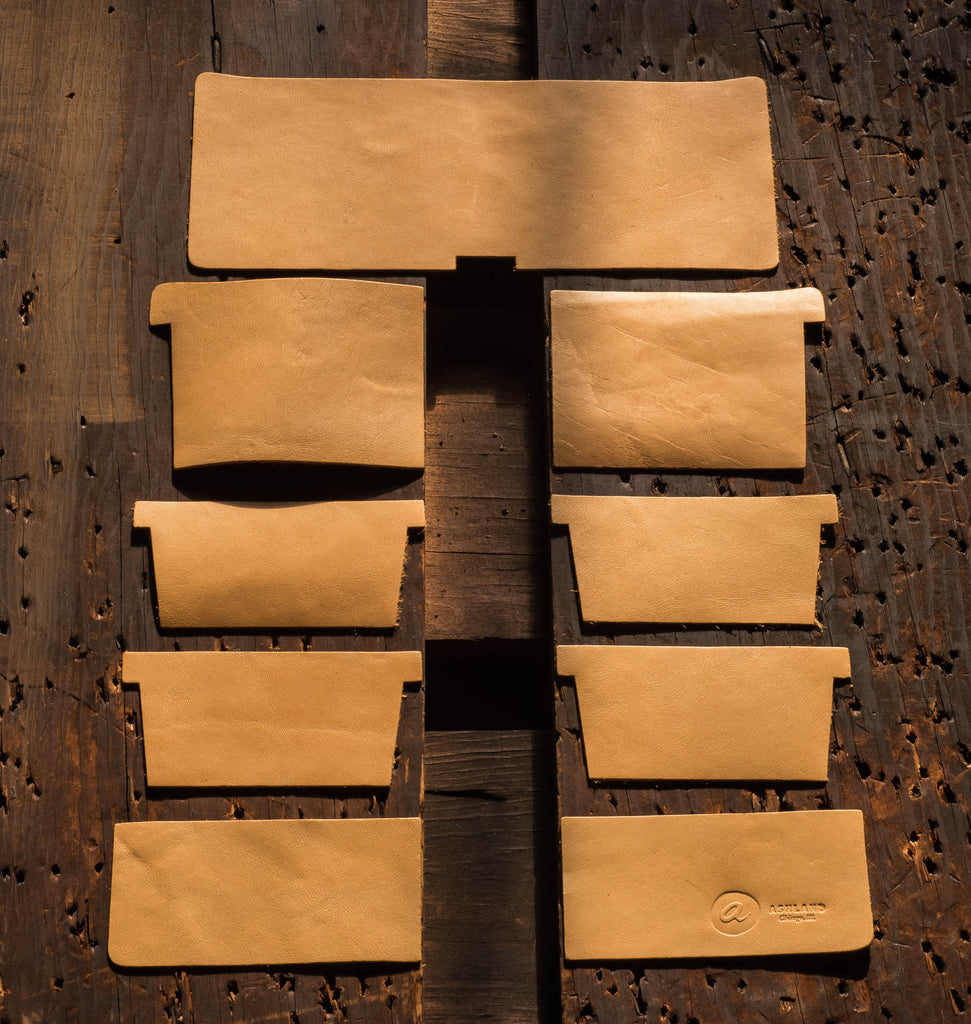
Below: Johnny the Fox Black shell cordovan interior
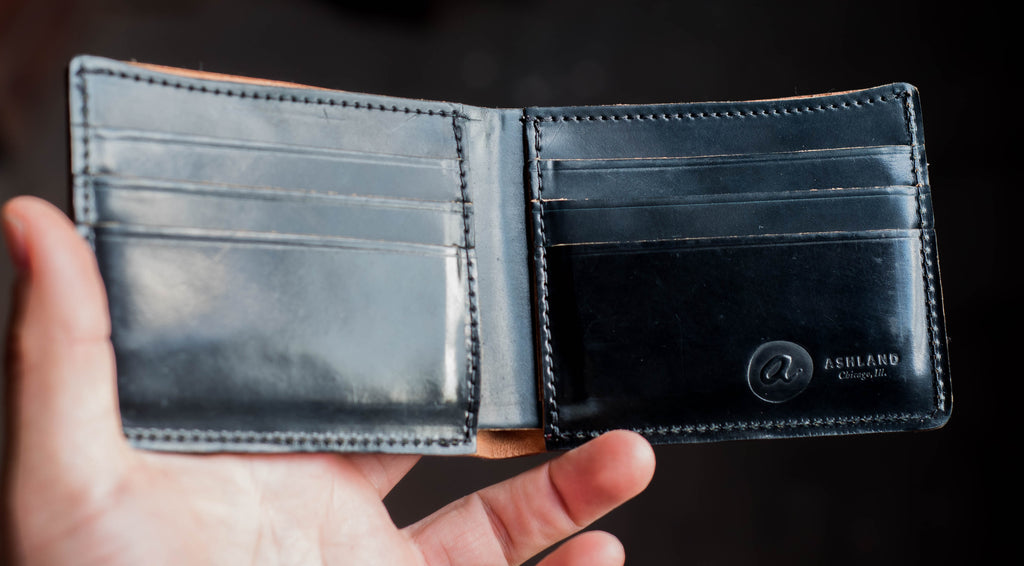
Below: Johnny the Fox - Black reverse shell interior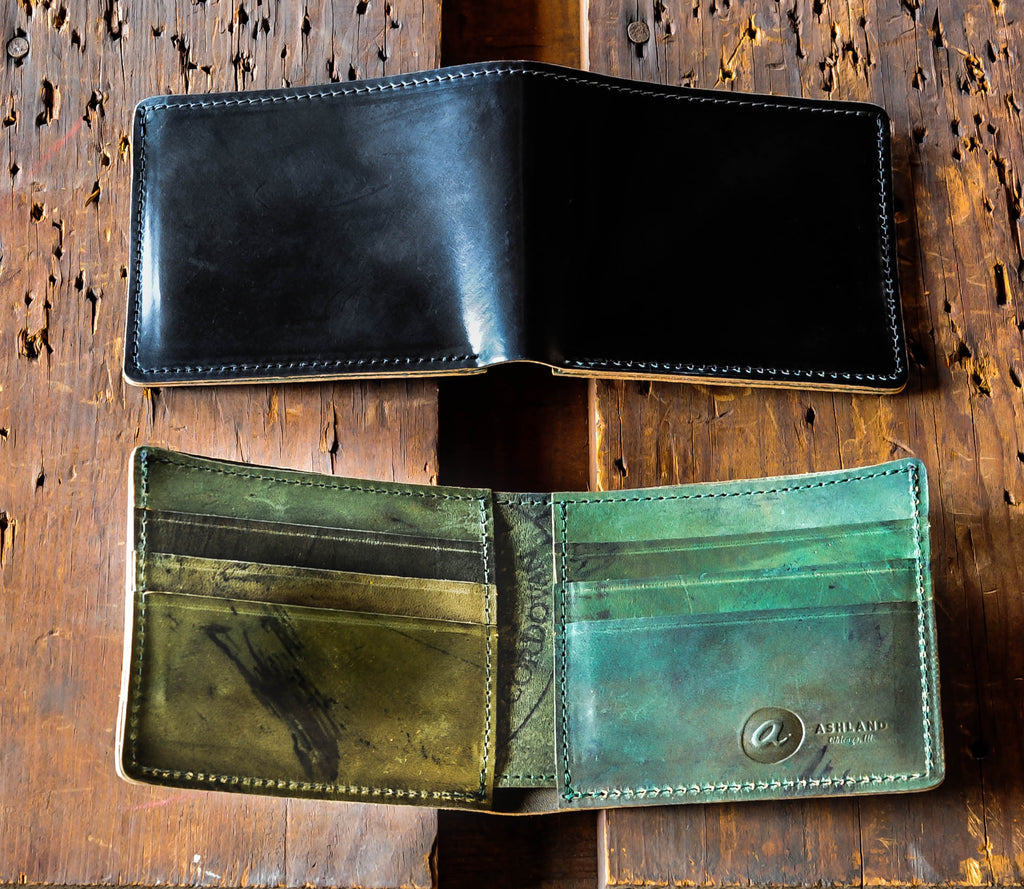
Below: Johnny the Fox - Color #8 reverse shell cordovan interior
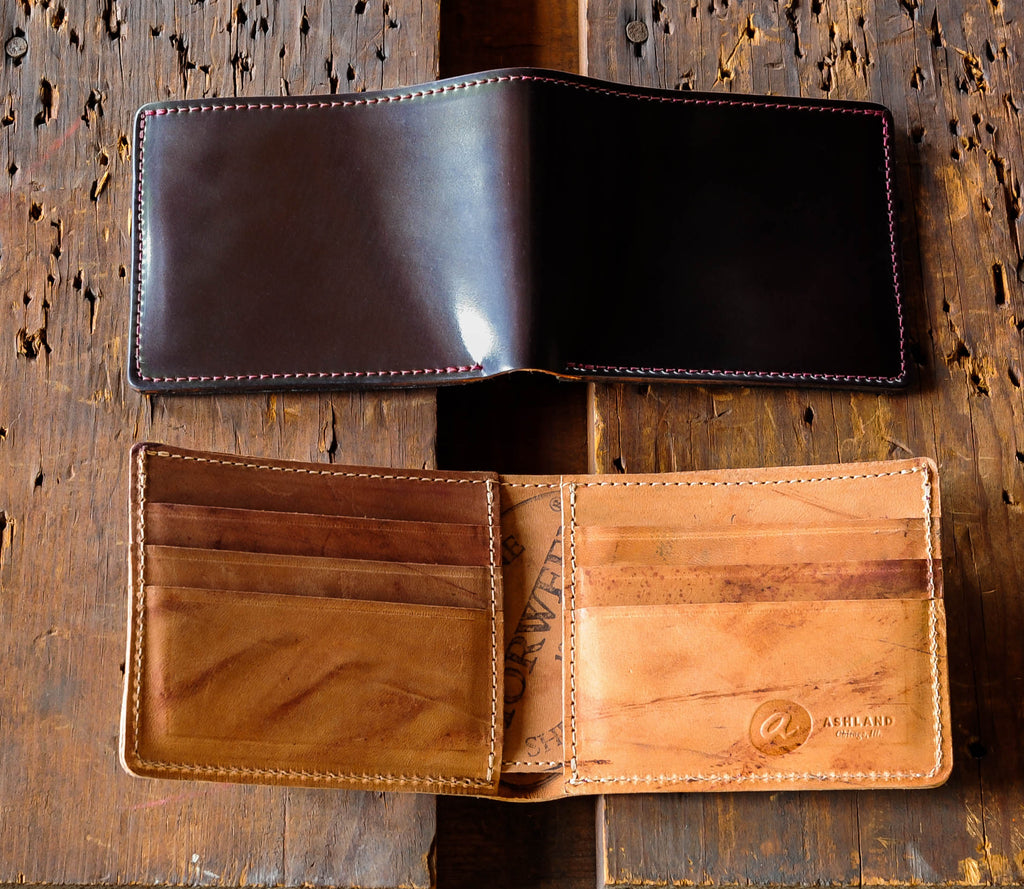
Below: Black horsehide interior (color 8 marbled exterior)
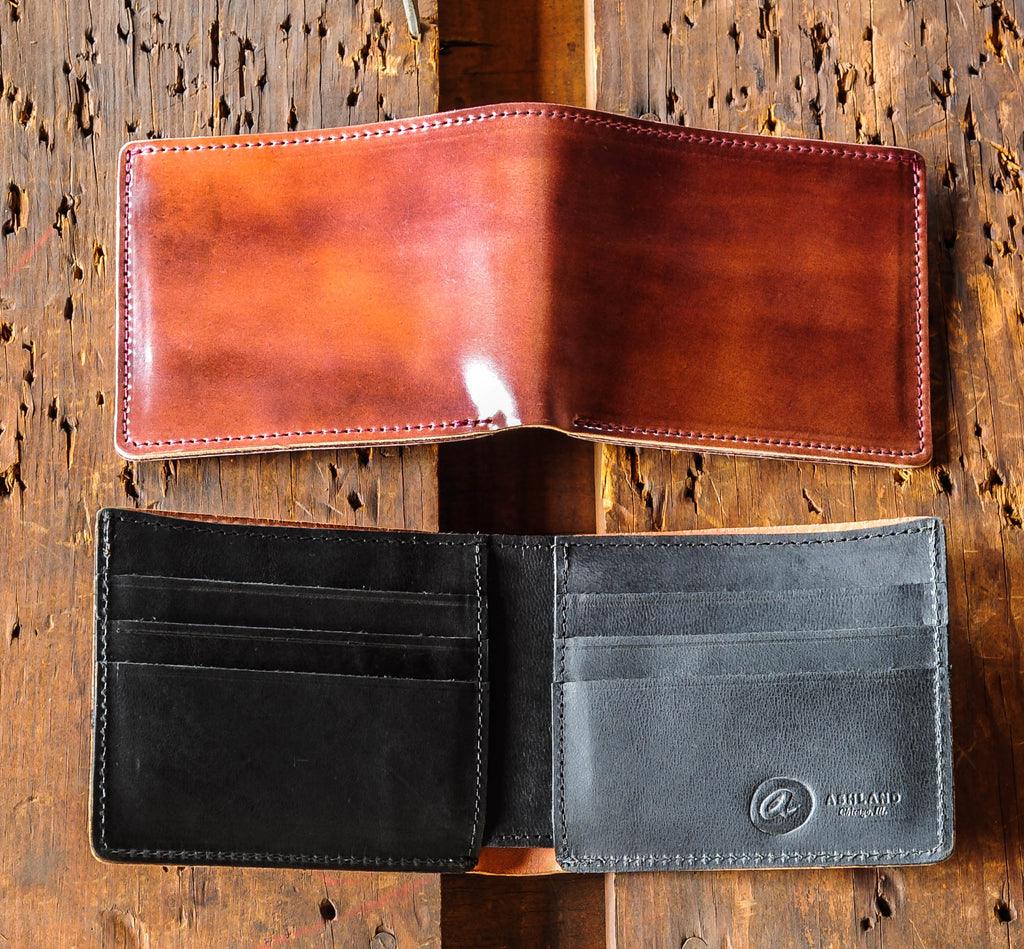
Below: Moc horsehide interior (whiskey shell cordovan exterior)
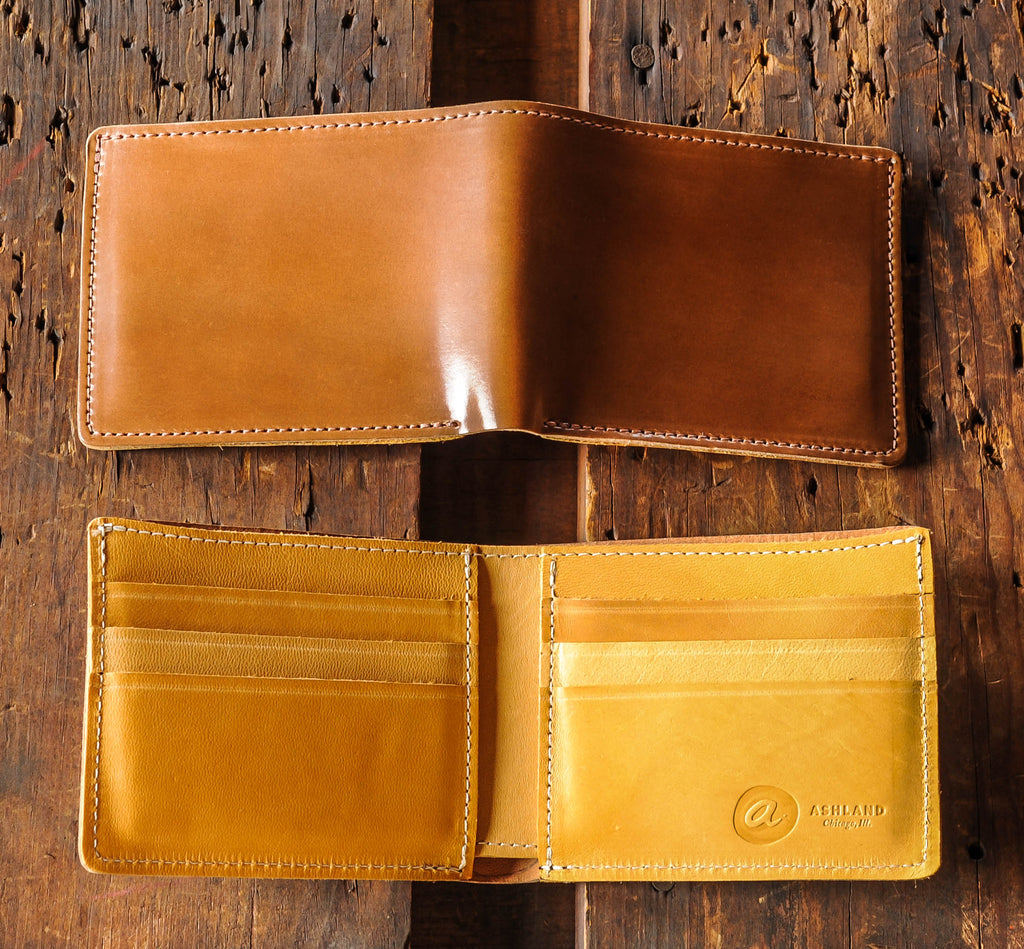
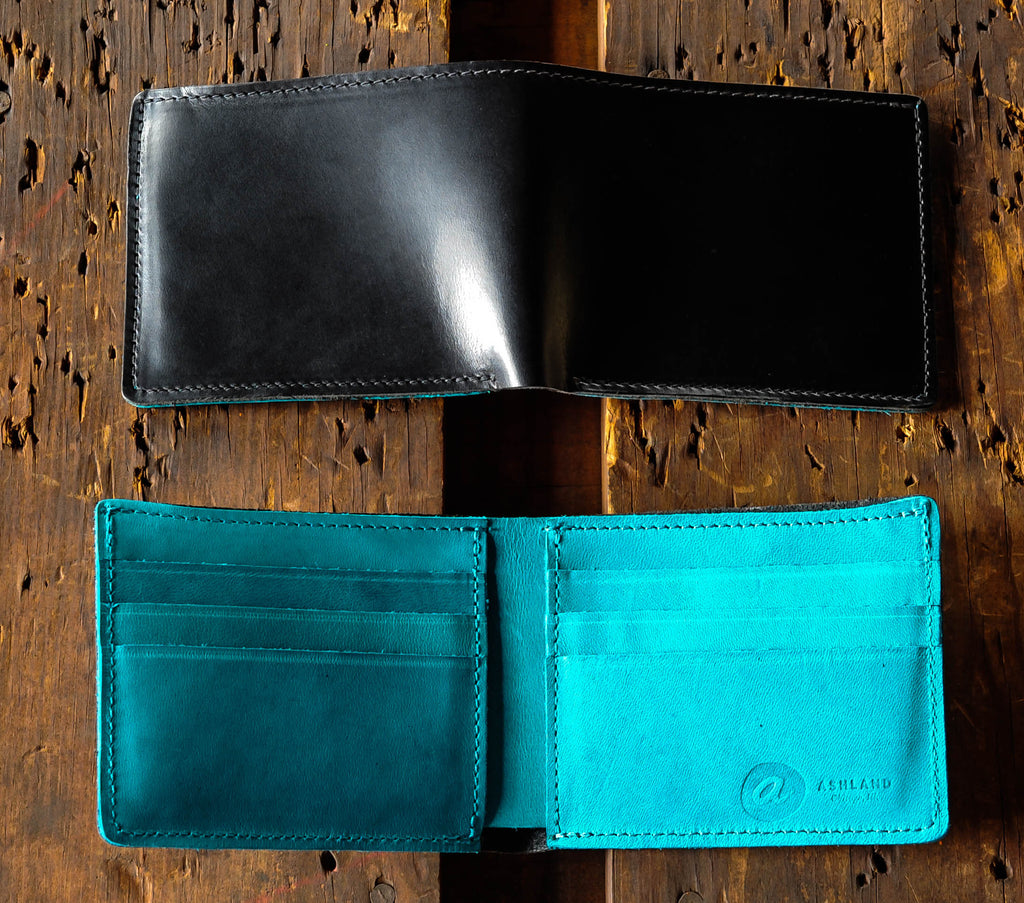


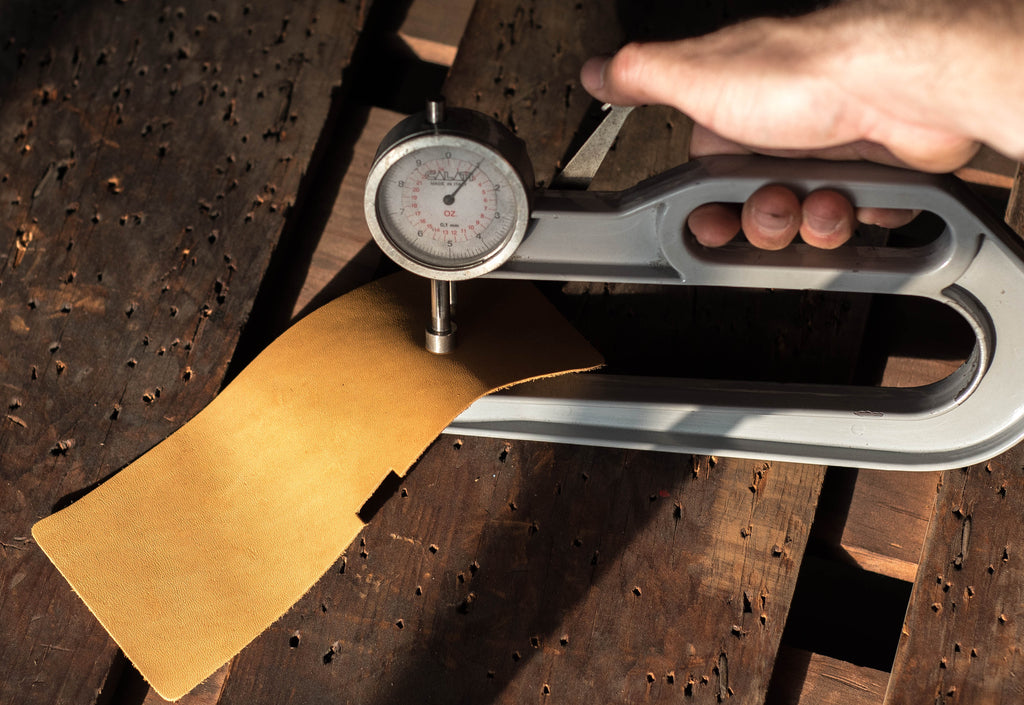
140 comments
Muchas gracias. ?Como puedo iniciar sesion?
Muchas gracias. ?Como puedo iniciar sesion?
Muchas gracias. ?Como puedo iniciar sesion?
Muchas gracias. ?Como puedo iniciar sesion?
Muchas gracias. ?Como puedo iniciar sesion?